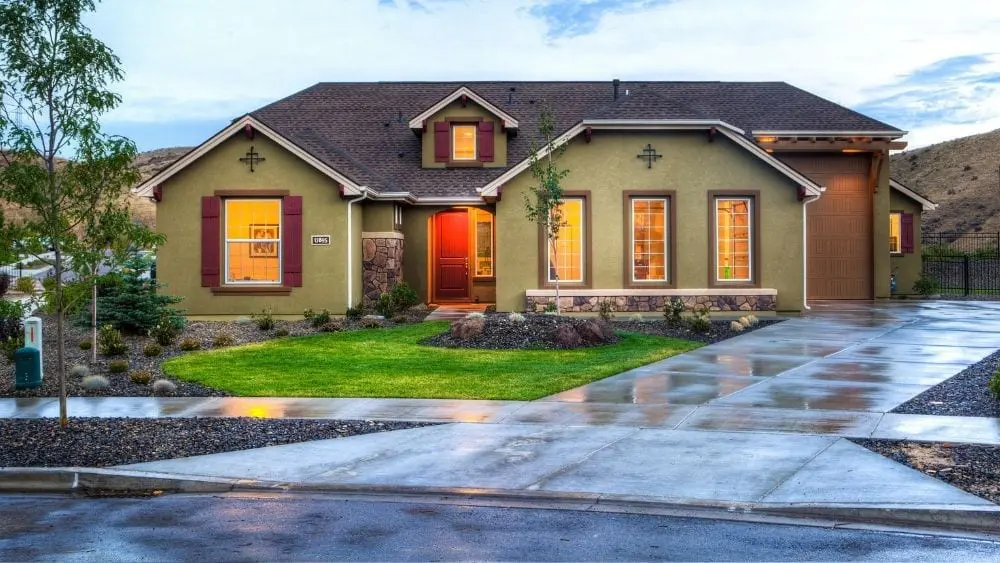
In today’s world where everything can be customized with a snap (or a tap) of the fingers, a modular or prefabricated home might not sound too appealing. After all, your home is meant to be your happy place, and it should be built to meet your individual needs.
While that’s true, purchasing a modular home doesn’t mean settling for a mass-produced, cookie-cutter layout. There are benefits to going the prefab route, and the best part is they don’t require you to sacrifice the individuality and comfort you expect from your home.
Not Manufactured, Not Mobile
Manufactured or mobile homes are not the same as modular homes. Manufactured homes are a specific subset of homes that, while built offsite and transported in parts, are constructed to the U.S. Department of Housing and Urban Development (HUD) code, not to International Residential Code (ICC) or state regulations.
And mobile homes? They’re just manufactured homes built before 1976. As the original name implies, these homes were meant to be moved regularly so people could travel for work. But following World War II, which utilized mobile homes as temporary housing, a need for permanent homes arose for returning soldiers. As the industry gained momentum, the U.S. decided to regulate the construction of mobile homes, and so the National Mobile Home Construction and Safety Act was passed, officially naming any future mobile home as a manufactured home that must be constructed to HUD code.
So What is a Modular Home?
While somewhat similar to manufactured homes, modular homes are quite different from their factory-built counterparts. First off, size and structure. Because there are no pre-determined dimensions like there are with manufactured homes (think single- or doublewide), the options are endless; oftentimes, a modular home next to a site-built home has nothing more than aesthetic differences.
There are tons of modular floorplans offered by builders and designers. Like planning a site-built home, it’s just a matter of finding the floorplan that is the right fit for you. Once a floorplan has been chosen, the builder begins construction in a factory, building module by module.
Construction takes weeks, as opposed to the several months (or longer, depending on weather) for a site-built home, and then the pieces are all transported to your lot. They are connected, placed on a permanent foundation, and voila: your modular home is ready for move-in!
Benefits of Choosing Prefab
In addition to an expedited timeline, there are several other benefits to modular homes. For one, modular homes are typically less expensive than traditional homes, which means homeownership is feasible for more people. As a bonus, they also tend to appreciate or maintain their value, rather than depreciating over time.
You might not think it, but being ICC and state regulated is a huge benefit, too. This means modular homes are built with your specific climate and conditions in mind, and not for mass distribution across several regions of the country. Builders also take care of the inspection process throughout the entire construction process, so you don’t have to worry about the inspector walkthrough that typically comes with home-buying.
Challenges of the Prefab Track
However, modular homes are not for everyone. If you want complete control over every aspect of your new home, custom building is a better fit for you. While there are a plethora of floorplans for modular homes, rarely can they be customized to the extent some homeowners would like; to keep the construction process efficient, modulars tend to stick to their floorplan.
Finances can be another challenge. New-build modular homes don’t typically include the lot they rest on, so you may need to purchase or rent the land, which can add to overall costs. Additionally, finding a lender might be more difficult, as financing options for modular homes can be limited. Carefully plan and research before you begin the process of purchasing a modular home.
The transportation process can also cause anxieties, as transit presents the opportunity for damage. Specifically, some homeowners fear stress cracks in the sheetrock. While this is a valid concern, don’t forget that you can have an inspector take a look over the house after installation so that you’re not caught by surprise. Additionally, choosing a builder who has experience with modular homes means they’re less likely to make any mistakes that would cause damage to your new home.
It’s Your Call
At the end of the day, the choice is ultimately yours. Some enjoy the speedy process of modular homes, others prefer the control of custom building, and yet others find that a manufactured home meets their needs. Modular homes are definitely a way to achieve your homeownership goals – perhaps quicker than planned, and for less cost. Regardless of which one is your best fit, check out NewHomeSource for the latest listings in your area.

Kian Zozobrado joined Builders Digital Experience (BDX) in 2019 as a content writer. A graduate of Southwestern University with a degree in English, Kian is passionate about the written word and making connections. Outside of work, Kian also serves as president of the Board of Directors for the Writers’ League of Texas.
 TV Shows to Inspire Tiny House Living
TV Shows to Inspire Tiny House Living
Kelia Brown
Good morning i am a Florida resident that is interested in owning one of these homes. Can i please have more information.
Jamie Garcia
Hi Kelia,
You can visit newhomesource.com and search for your preferred city to find a modular home builder!